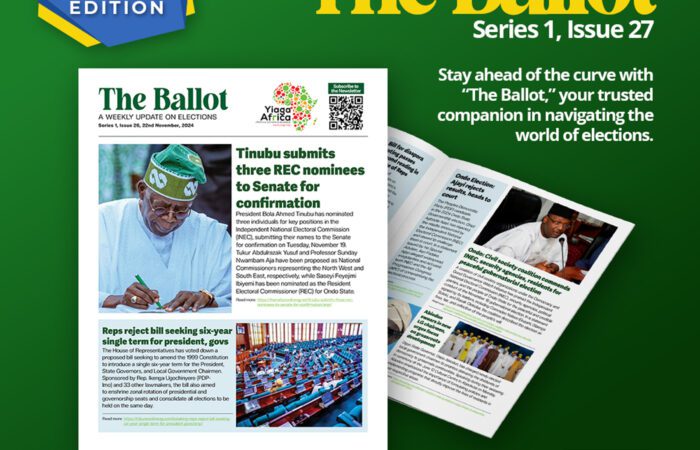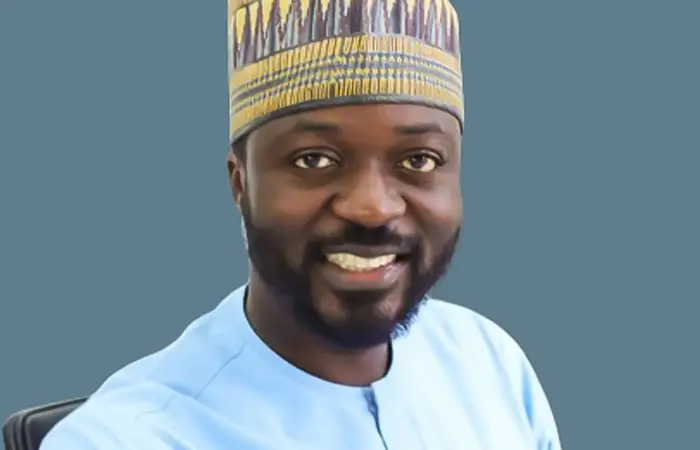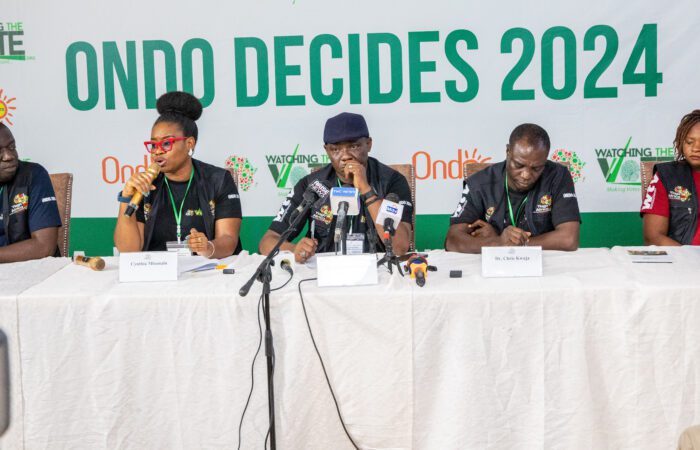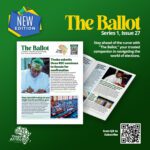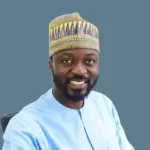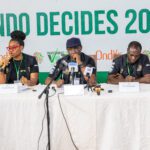By Plangret Dabup
The road to the 2019 General Elections in Nigeria has been a very interesting and rigorous one. Compared to 2015, there has been more awareness and citizen participation in all the electoral process. Information concerning the political primary elections has been circulated in the public and there has been massive response, both positive and negative.
According to Watching The Vote’s Statement on the conduct of political primaries the process was characterized by bold flaunting of electoral laws and party procedures in some of the political parties. There was also a lot of foul play and lack of uniformity in the nominations, thereby excluding women and young persons in the process. The statement by the organization couldn’t have come at a better time. This is because while the Press Conference was going on, there was a brewing fracas in Plateau state over the conduct of the Local Government elections which held on the 10th of October, 2018.
One will recall that in the last month, there has been an onslaught of sectarian crisis in the state and hence, the state government had announced that elections would not be held in Jos North, Jos South, Barkin Ladi and Riyom Local Governments. It is pertinent to state at this point that the Governor had dissolved the Local Government Councils in the 17 Local Governments in August 2015.
However, an observer group called Plateau State Coalition on Electoral Reforms and Good Governance (PLASCER) in its report made certain observations about the Election Day procedures highlighted a series of electoral malpractices, the most disturbing being those that occurred at the counting and accounting stage in some Local Governments. The Electoral Commissioners left for the state collation center without counting the votes that came in from the various wards. Subsequently, the elections in those Local Governments were declared inconclusive. Furthermore, other Local Governments, the results came in from the wards but the polling officials were met with empty collation centers. Hence, the ballot papers, results sheets and other sensitive materials were left unattended to as there were no electoral staff present.
While the citizens were getting agitated over these developments, the Plateau State Electoral Commissioner Mr Fabian Ntung, announced the results for the election. The outcry that followed showed that the citizens are concerned about the electoral process and importantly credibility of the process. As more citizens, particularly young people begin to position themselves in the political spaces in the country, there is a need to elevate the conversation beyond protests and violence.
First of all, young aspirants and party members should keep abreast with the amendments that are being made to the Electoral Act and the Constitution as it concerns elections in Nigeria. One landmark amendment that was recently made is the Presidential assent of the Constitution of the Federal Republic of Nigeria, 1999 Alteration (No 21) Act, 2017. This amendment expands the powers of election tribunals to hear pre-election matters, namely the non-adherence to the laws and guidelines by political parties and INEC in the conduct of party primaries and the non-adherence of INEC to the law on issues of rejecting aspirants. This has opened up the gates of justice to aspirants who have been marginalized or unduly excluded from election processes at the preliminary stages.
Furthermore, there is a need for legislative engagement by the citizens to ensure that the laws regulating Local Government elections are improved to guarantee a freer and fairer process. The current laws give the State Independent Electoral Commissions the power to conduct Local Government elections independently (while INEC reserves the right to conduct Local Government elections in the FCT). However, in practice, these bodies do not operate independently which is a concern that has been raised with the structure of the Independent National Electoral Commission. Furthermore, the law is not all encompassing as per the election petitions arising from Local Government elections. This has led to undemocratic precedents in many of the states.
Similarly, the foremost Citizen movement on credible election data, YIAGA AFRICA’s Watching The Vote recommends the need for citizens to peruse conversations about what the aspirants are coming to offer. More so, citizens need to hold the other stakeholders in the election accountable regarding their roles in the pre-election phases. This includes trends of voter suppression, collusion between actors and other malpractices. Most notably is the conduct of the security officials during the Osun rerun election as well as the issues over the tearing of result sheets by an electoral official during the main election.
How can these wrongs be addressed before the General Election in 2019? Do our laws sufficiently provide consequences for such actions? These are some of the issues that should be dominating political and governance discuss, particularly in the grassroots where there is increased citizen awareness.
Plangret Dabup is a Zonal Program Officer with YIAGA Africa

